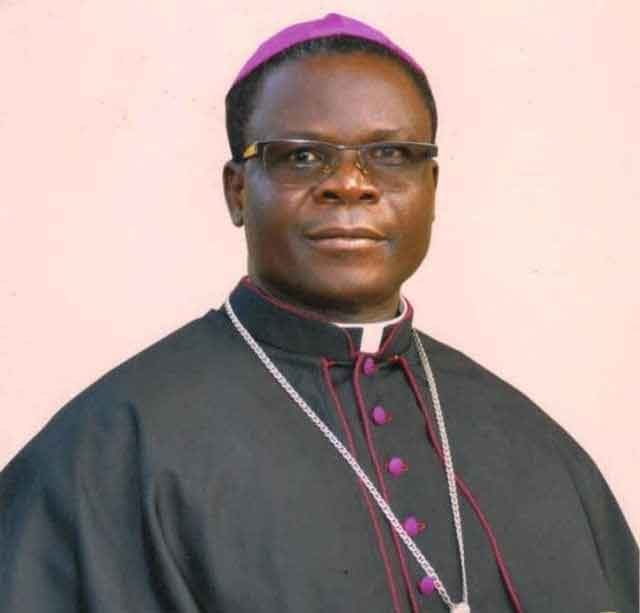
Kampala, Uganda | THE INDEPENDENT | The Right Reverend Sanctus Lino Wanok, the Bishop of Lira Diocese will represent the Uganda Episcopal Conference (UEC) at the highly anticipated Ordinary General Assembly of the Synod of Bishops, scheduled to take place in the Vatican next month. According to information released by the Holy See press office, Bishop Wanok, who also serves as the UEC Vice Chairperson, will join over 450 participants from around the world in attending the first part of the Synod of Bishops.
This synod distinguishes itself by incorporating non-bishops, including priests, religious individuals, and laypeople, who will actively participate in the assembly and possess voting rights on the final document to be concluded in October 2024. An unprecedented aspect of this Synod is the inclusion of more than 50 women who will participate as voting members in the assembly.
Many experts anticipate that this event could be the most transformative occurrence in the Catholic Church since the Second Vatican Council held between 1962 and 1965. During the nearly month-long assembly at the Vatican, Bishop Wanok and other delegates will deliberate on the questions raised by Christians worldwide through a comprehensive consultation process initiated in 2021.
This process has involved small Christian communities in villages, diocese-level discussions, and continental consultations. The resulting document, titled “Instrumental laboris,” encompasses various pressing topics, such as women deacons, LGBTQ outreach, and the establishment of new institutional bodies to enhance the participation of the “People of God” in decision-making processes, with a particular emphasis on women, youth, and individuals with disabilities.
The instrumental laboris also includes a significant inquiry into the discipline of priestly celibacy, posing the question, “As some continents propose, could a reflection be opened concerning the discipline on access to the Priesthood for married men, at least in some areas?” the instrumental laboris asks and the answer will be given at the end of the synod.
Ideas Uganda, Africa Are Taking to Rome
The concerns raised by Ugandan Catholics during the diocesan consultation have shed light on several issues that they hope will be addressed during the synod. For instance, faithful in the Kampala Archdiocese have expressed apprehension about the unfair treatment of vulnerable groups by clergy and other Church leaders.
One submission from a faithful member reads, “The marginalized like the poor, needy, single mothers, not officially married are not listened to… Some priests in some Parishes want to move with only the rich people. The poor are not heard. The (Church) elders listen to the rich.” Similar concerns have been voiced by faithful from various countries across Africa, reflecting a broader sentiment.
At the African Synodal Continental Assembly held in March in Addis Ababa, Ethiopia, delegates emphasized eight crucial issues that they urge the synod of bishops to address. These issues were articulated in the final document produced during the weeklong assembly.
The delegates highlighted the importance of nurturing life and urged the universal Church to reaffirm its stance on life from conception to natural death, emphasizing co-responsibility, biblical hospitality, and the dignity of children, women, and men. They also requested that African voices and values be taken into account when formulating church doctrines and teachings, incorporating values such as family, solidarity, communal living, respectful dialogue, hospitality, and co-responsibility.
“Africans share equal responsibility for the doctrines and teachings of the Church, in collaboration with other local Churches. Consequently, it is of paramount importance to consider their experiences and ever-evolving cultural values, as well as give equal attention to their problems. This approach will enable them to embrace the teachings and be committed to living them out,” they emphasized.
Furthermore, the African delegates urged the synod to focus on conflict resolution, combat economic colonialism and illicit exploitation of African resources, and promote good governance, justice, peace, and climate change awareness. They emphasized the need for the Synodal Church to engage in advocacy and concrete peace negotiations, particularly among nations and communities involved in conflicts.
The delegates also stressed the importance of pastoral care that addresses the challenges faced by marriage and family in present-day Africa, including situations involving polygamy, divorce and remarriage, single parenthood, and child protection. With the synod now set in motion, the Catholic community in Africa cautions against the influence of secular forces that oppose the mission of the Church. These forces encompass ideologies, as well as economic or political policies that undermine the teachings of the faith.
“Some of these forces influence Church leaders and put pressure on theologians with the intention of diluting the content of the faith. There is a call for the Synodal Church to be awake to such influences and remain focused on the Word of God and the firm tradition of the Church,” the final document from the African Synodal assembly added
*****
URN
 The Independent Uganda: You get the Truth we Pay the Price
The Independent Uganda: You get the Truth we Pay the Price



